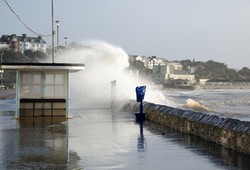Towards sustainable adaptation solutions
Climate change could disrupt ecological, social and economic systems, with some regions and sectors experiencing major difficulties. However, policymakers, practitioners and other stakeholders face a number of challenges when creating suitable and sustainable adaptation strategies. These include uncertainties and insufficient knowledge, as well as the need to improve assessments and the mainstreaming of adaptation in policy. The EU-funded BASE(opens in new window) (Bottom-up climate adaptation strategies towards a sustainable Europe) project supported adaptation planning and implementation across Europe by providing interdisciplinary evaluation of costs, benefits, effectiveness, challenges and opportunities of adaptation across urban, rural, water, agriculture and health sectors. In addition, BASE provided strategic support to the European Commission’s strategy on adaptation to climate change. This was achieved by reinforcing the knowledge base and offering tools to steer decision-making on adaptation towards a sustainable Europe. Project outcomes also supplied information to CLIMATE-ADAPT, an EU initiative that helps users to access and share data and information on adaptation. Knowledge does not always flow well between top-down and bottom-up processes. Hence, the team set out to establish effective communication lines between, for example, EU decision-makers and local farmers. Project partners also explored comparable climate change adaptation case studies throughout Europe to accumulate the knowledge and understanding required at the local level. Researchers provided six climate and socioeconomic scenarios that were appropriate for the comparable case studies. They covered coastal zones, agriculture and forestry, water resources, human settlements and infrastructure, biodiversity and ecosystems, and health. Economic assessments were made for the short, medium and long terms by reviewing methods that could integrate uncertainty (such as the adaptation pathways). The long-term perspective provided local stakeholders with a clearer understanding of the scope of adaptation processes and with effective tools to integrate uncertainty into an ongoing planning process. BASE activities have made information concerning adaptation more relevant, understandable and easily accessible. This increased understanding of what the adaption process entails over the long term has resulted in a wider acceptance of the need to adapt and include adaptation methods in the case studies. This has resulted in better integration of adaptation research into the decision-making process with regard to climate change.







